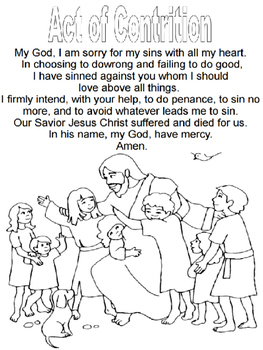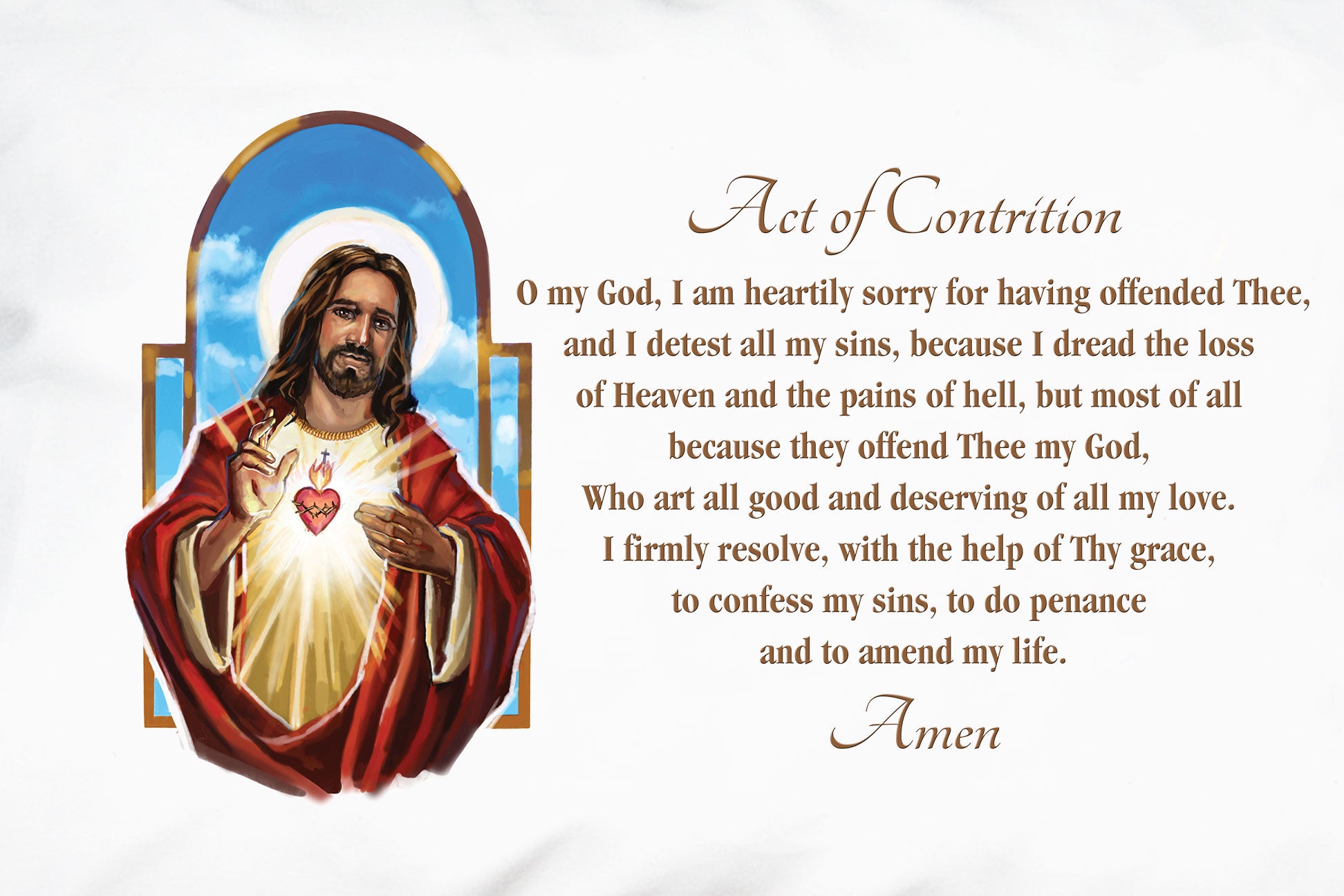

This sorrow of soul is not merely speculative sorrow for wrong done, remorse of conscience, or a resolve to amend it is a real pain and bitterness of soul together with a hatred and horror for sin committed and this hatred for sin leads to the resolve to sin no more.

Thomas Aquinas in his Commentary on the Master of the Sentences thus explains its peculiar use: "Since it is requisite for the remission of sin that a man cast away entirely the liking for sin which implies a sort of continuity and solidity in his mind, the act which obtains forgiveness is termed by a figure of speech 'contrition'" (In Lib.

Etymologically it implies a breaking of something that has become hardened. The word contrition itself in a moral sense is not of frequent occurrence in Scripture (cf. iv de Contritione): "a sorrow of soul and a hatred of sin committed, with a firm purpose of not sinning in the future". It is defined explicitly by the Council of Trent (Sess. This interior repentance has been called by theologians "contrition". More clearly does this appear in the parable of the Pharisee and the publican ( Luke 18:13), and more clearly still in the story of the prodigal ( Luke 15:11-32): "Father, I have sinned against heaven and before thee: I am not worthy to be called thy son". Turn away thy face from my sins, and blot out all my iniquities. To thee only have I sinned, and have done evil before thee. This is clearly expressed in Psalm 50 (5-14): "For I know my iniquity. At times this repentance includes exterior acts of satisfaction ( Psalm 6:7 sqq.) it always implies a recognition of wrong done to God, a detestation of the evil wrought, and a desire to turn from evil and do good. In Holy Writ nothing is more common than exhortations to repentance: "I desire not the death of the wicked, but that the wicked turn from his way and live" ( Ezekiel 33:11) "Except you do penance you shall all likewise perish" ( Luke 13:5 cf. ( Latin contritio-a breaking of something hardened).


 0 kommentar(er)
0 kommentar(er)
